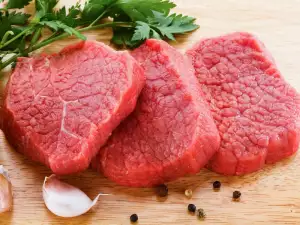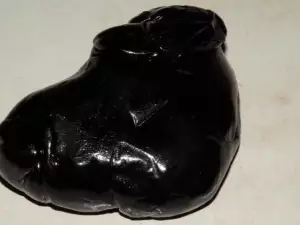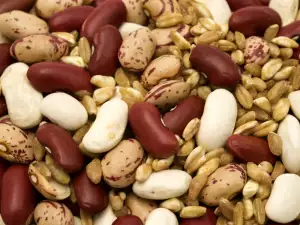Creatine is one of the most effective and well-known additives that are used in the field of power sports. It was found in 1832 by the French scientist Michel Eugène Chevreul. The creatine in the body is formed from the amino acids glycine, arginine and methionine. The body contains about 120 g of creatine, which is in the form of creatine phosphate. Its main function is to assist in obtaining the necessary energy for cells.
Functions of creatine
The adoption of creatine supplements increases the concentration of creatine phosphate in the body. As a result, adenosine triphosphate in the body increases its concentration – it can be recovered more quickly and for a longer time is able to supply the energy to the muscles. The entire process can be explained as follows: the muscles in the human body uses adenozine-trifosfate/ATF / to find the necessary energy. During reduction, ATP breaks down to yield adenosine diphosphate.
To continue the work of the muscles, adenosine diphosphate becomes ATP again by joining a phosphate molecule. It is taken from the compound Cretin-phosphate, which as mentioned circulates in the body. Thereby recovering the presence of the required ATP, and again loading the body with energy.

Selection of creatine
The variety of creatine supplements is extremely high. The most common are creatine monohydrate, creatine gluconate, creatine malate, creatine citrate and many others. This is only a very small part of all the forms of creatine, which are commercially available. Given the diversity is very difficult to determine which product is best suited. A number of experts in the field agree that the best is creatine monohydrate, KM, and in particular the micronized KM, preferable because it is easier for the stomach and dissolve it.
Benefits of Creatine
Taking creatine gives additional strength to athletes. This energy will in turn contribute to more intense workouts, increase the weights used and weight gain. All of these have a very strong psychic effect, which is a very good reward after hard training.
Among the proven benefits of taking creatine are rising of the amount of total creatine in the body, increase of muscle mass, weight gain resulting from an increase in lean body mass, less fatigue and more endurance during intense exercise, and improving cognitive powers, has potential benefits in Parkinson's and Huntington's disease. Creatine assists in muscular dystrophy and in combination with training can reduce the level of LDL in the blood.

Benefits of Creatine Monohydrate
There are several advantages that creatine monohydrate has over other forms. Firstly, almost all studies ever are made on creatine monohydrate. This means that the foregoing benefits for KM are fully demonstrated. Furthermore, this form of creatine is completely safe for your health. Some of the other forms that are available in the market are allowed to sell, but are largely ineffective and some are even harmful. Also, it is the cheapest form that is sold.
Daily doses of creatine
It is recommended that creatine monohydrate is taken in between 3 and 5 grams per day. You can drink it at any time of the day - after exercise between meals, morning, afternoon or evening.
The only exception is before your workout - then it should not be accepted. However, as it can be taken at any other time, this is not a problem for athletes.
Most convenient is to drink it during breakfast. Thus, it is most unlikely to be forgotten during the day. It can be taken with coffee, juice, milk, water, protein shake, etc..
Regarding the duration of intake, the most common is the practice of taking periods. Example - Two months intake, then one month break. Intervals may vary according to the plans of the athlete, but the best is if the rest period is not less than 30 days.
Sources of creatine
Creatine can be purchased on its own or as part of other supplements. It is added in different protein powders, recreational facilities, post workout powders, amino acid complexes, gainers and many others.
Creatine is naturally contained in certain foods - beef, herring and salmon are characterized by a very high concentration of this chemical. 1 kg beef contains 4 grams of creatine.
















Comments